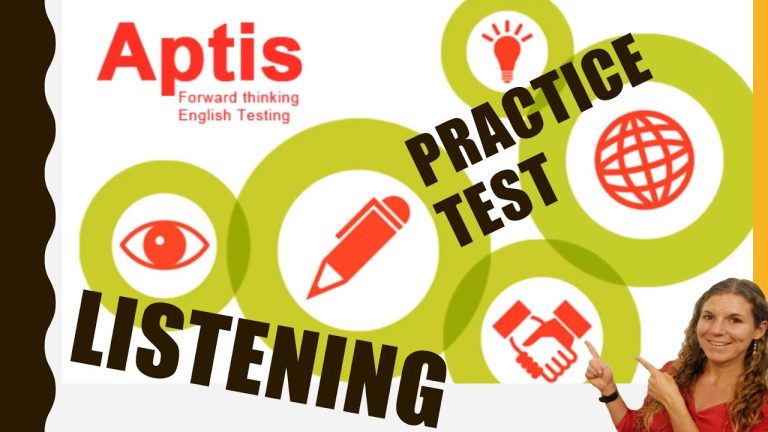Descubre las expresiones más usadas en inglés con nuestro completo recopilatorio de gre idioms
Exploring the Most Common GRE Idioms for Success in the Exam
Introduction
When it comes to preparing for the GRE exam, there are many aspects to consider. One particular area that often confuses test-takers is idioms. These word combinations, unique to the English language, can be tricky to understand and use correctly. However, mastering idioms is crucial for success in the verbal reasoning sections of the GRE. In this article, we will explore some of the most common GRE idioms and how to effectively utilize them in the exam.
The Importance of Idioms
Idioms are not just random phrases; they carry specific meanings that may not be evident from the individual words. Understanding and using idioms correctly showcases your language proficiency and helps improve your score on the GRE. Idioms are frequently tested in sentence equivalence and text completion questions, so being familiar with them can significantly enhance your ability to answer these types of questions accurately.
Common GRE Idioms
1. «Cutting corners» – This idiom refers to taking shortcuts or finding alternative ways to achieve a goal. It is often used to describe someone who is willing to compromise quality for convenience.
2. «In a nutshell» – This idiom means to summarize something concisely or explain it in a brief and straightforward manner. Using this idiom can demonstrate your ability to condense information effectively.
3. «To have the upper hand» – This expression is used to describe a situation where someone has an advantage or is in a position of control. Understanding this idiom can help you accurately interpret the meaning of certain texts or passages in the exam.
In conclusion, mastering idioms is essential for success on the GRE exam, particularly in the verbal reasoning sections. By familiarizing yourself with common GRE idioms, such as «cutting corners,» «in a nutshell,» and «to have the upper hand,» you can effectively demonstrate your language proficiency and significantly improve your scores on idiom-related questions.
Mastering GRE Idioms: How to Boost Your Verbal Reasoning Score
The Importance of Idioms in the GRE Exam
Idioms play a crucial role in the GRE Verbal Reasoning section. Mastering these idiomatic expressions can significantly boost your score on this section of the exam. Idioms are phrases or expressions that have a figurative meaning different from the literal interpretation of the words used. Understanding and correctly using idioms can demonstrate a strong command of the English language and enhance the clarity and precision of your writing.
Strategies to Master GRE Idioms
To excel in the GRE verbal reasoning section, it is essential to dedicate time and effort to mastering idioms. Here are a few strategies to help you effectively learn and apply idiomatic expressions:
1. Build a Strong Foundation: Start by familiarizing yourself with common idioms and their meanings. Invest time in reading books, articles, and reputable GRE study materials that include idiomatic phrases. Understanding the context in which idioms are used will enable you to use them accurately in your responses.
2. Practice in Context: It is not enough to memorize idioms alone. Practice incorporating them into sentences relevant to the GRE exam. This will help you understand how idiomatic expressions are used and improve your ability to apply them correctly in both the verbal reasoning and writing sections.
3. Create Flashcards: Create flashcards with idiomatic expressions on one side and their meanings on the other. Regularly review these flashcards to reinforce your understanding and retention of idioms. This practice will also facilitate quick recall during the exam.
The Advantages of Mastering GRE Idioms
Mastering idioms can confer several advantages when tackling the GRE Verbal Reasoning section. Firstly, using idiomatic expressions effectively can enhance the clarity and conciseness of your written responses, earning you higher scores in the writing section. Furthermore, demonstrating a strong command of idioms can make your writing more engaging and sophisticated, impressing the examiners and potentially boosting your overall score. Finally, incorporating idiomatic expressions in your responses showcases your ability to comprehend and use complex language constructs, reinforcing your proficiency in verbal reasoning.
With the above strategies and a dedicated approach to mastering idioms, you can significantly improve your performance in the GRE Verbal Reasoning section, increasing your chances of achieving a high overall score on the exam.
Unlocking the Hidden Secrets of GRE Idioms: A Comprehensive Guide
The GRE exam is a crucial stepping stone for students aspiring to pursue higher education. One of the challenging sections in the test is the idioms section. Understanding and mastering idioms not only helps in boosting vocabulary but also plays a significant role in improving overall reading comprehension skills.
In this comprehensive guide, we will delve deep into GRE idioms, uncovering the hidden secrets that will help you unlock success in this section. We will provide a step-by-step approach to learning idioms, breaking them down into categories based on their usage, and offering practical tips on memorization.
To ensure a thorough understanding, we will analyze real GRE idiom questions and explore the subtle nuances of usage. By gaining a comprehensive understanding of idioms, you will be able to confidently tackle questions that test your proficiency in recognizing correct idiomatic expressions.
Stay tuned as we reveal the hidden secrets of GRE idioms in this comprehensive guide. Prepare yourself to embark on a journey of enhancing your vocabulary skills, improving your comprehension abilities, and ultimately boosting your chances of acing the GRE exam. Get ready to unlock the hidden secrets and excel in the idioms section!
Top 10 Must-Know GRE Idioms to Ace Your Verbal Section
If you are preparing to take the GRE exam, then you are probably well aware of the importance of the verbal section. One area that often stumps test-takers is idioms. GRE idioms can be tricky because they are phrases with meanings that are not always evident from their individual words.
To help you excel in the verbal section, we have compiled a list of the top 10 must-know GRE idioms. Mastering these idioms will not only enhance your understanding of the English language but also boost your score on the exam.
Some of the idioms on our list include «hit the nail on the head,» «go the extra mile,» and «turn a blind eye.» These idioms are commonly used in both formal and informal contexts, making them essential for effective communication.
- Hit the nail on the head – To say or do something that is exactly right or accurate.
- Go the extra mile – To make more effort than is expected.
- Turn a blind eye – To pretend not to notice or ignore something.
- …
By familiarizing yourself with these idioms and their meanings, you will be equipped to tackle the verbal section of the GRE with confidence. So start incorporating them into your daily vocabulary and watch as your understanding and test scores improve!
Proven Strategies for Memorizing GRE Idioms Effectively
En el mundo competitivo de los exámenes de admisión, como el GRE, es crucial tener una sólida comprensión de los idiomas y expresiones idiomáticas en inglés. Los examinadores a menudo incluyen preguntas que evalúan el conocimiento y la aplicación de estas idiomáticas en la prueba. Para muchos estudiantes, memorizar estas expresiones puede resultar un desafío, pero con las estrategias adecuadas se puede lograr de manera efectiva.
Una de las estrategias más efectivas para memorizar las expresiones idiomáticas del GRE es crear tarjetas de estudio. En estas tarjetas, puedes escribir una expresión idiomática en un lado y su significado en el otro. Luego, puedes dedicar tiempo todos los días a revisar estas tarjetas, repitiendo en voz alta el significado de cada expresión mientras las vas revisando. Esta técnica de estudio basada en la repetición y la práctica constante ayuda a reforzar el conocimiento y la retención de las expresiones idiomáticas.
Además de utilizar tarjetas de estudio, es útil integrar las expresiones idiomáticas en tu día a día. Puedes crear situaciones imaginarias en las que utilices estas expresiones en conversaciones o al escribir frases. Al hacerlo, estarás aplicando las expresiones de manera práctica y contextual, lo cual facilita su memorización y comprensión. Puedes anotar estas situaciones o frases en una lista y referirte a ellas regularmente como punto de referencia para practicar las expresiones idiomáticas.
Por último, es esencial utilizar recursos adicionales, como libros y software especializados en GRE, para ampliar tu conocimiento y práctica de las expresiones idiomáticas. Estos materiales ofrecen ejercicios y pruebas que te ayudarán a familiarizarte con una amplia gama de expresiones idiomáticas comunes en el examen. También puedes buscar en línea recursos gratuitos, como blogs y videos, que brinden ejemplos y explicaciones detalladas de las expresiones idiomáticas utilizadas en el GRE.
En resumen, memorizar las expresiones idiomáticas del GRE requiere dedicación y práctica constante. Utilizando tarjetas de estudio, integrando las expresiones en situaciones prácticas y utilizando recursos adicionales, estarás en camino de dominar eficazmente el uso de estas expresiones en el examen. Recuerda que la práctica regular y la exposición constante son clave para internalizar y utilizar de manera eficaz las expresiones idiomáticas en el GRE.
Contenido







